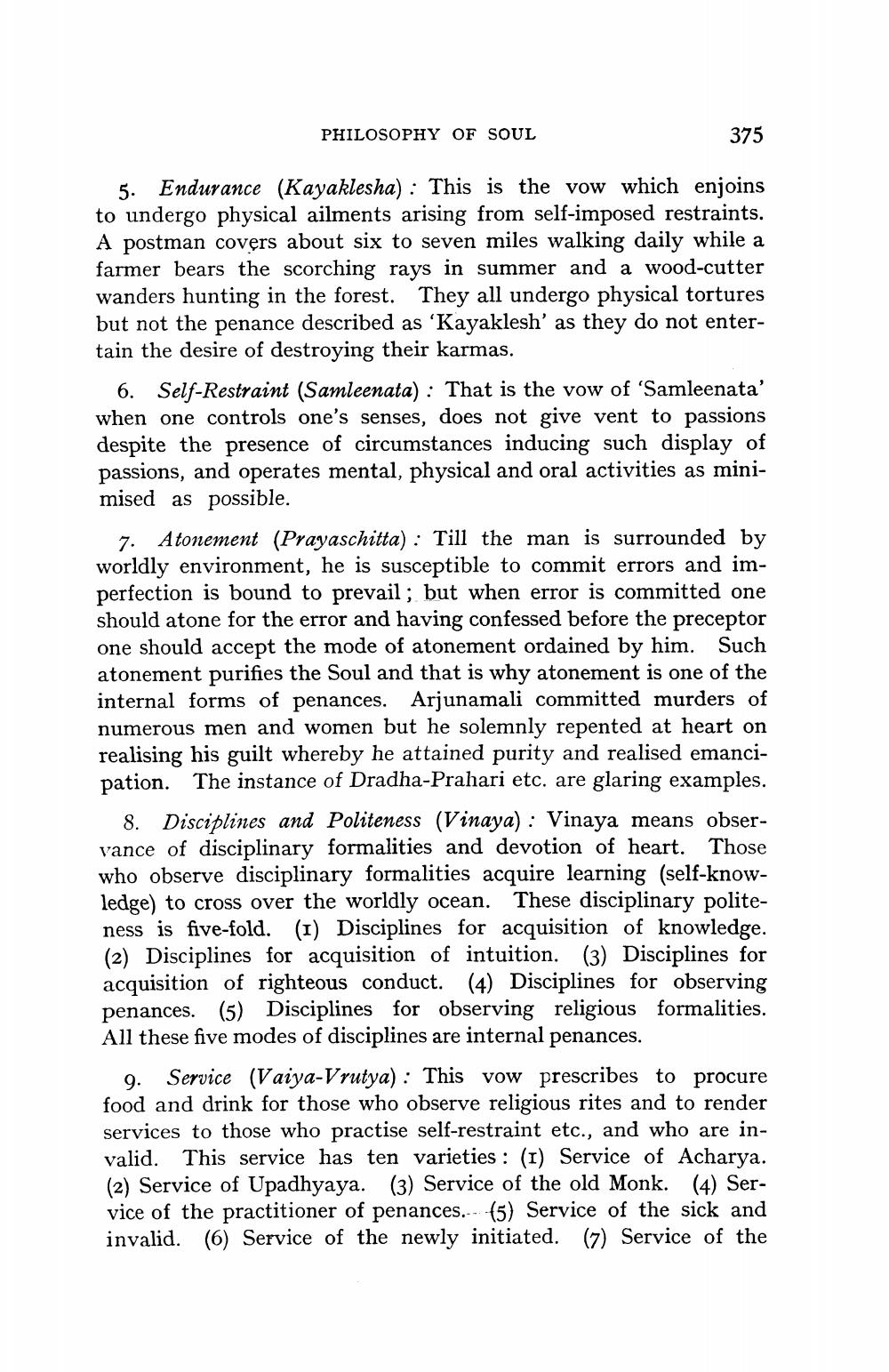________________
PHILOSOPHY OF SOUL
375
5. Endurance (Kayaklesha) : This is the vow which enjoins to undergo physical ailments arising from self-imposed restraints. A postman covers about six to seven miles walking daily while a farmer bears the scorching rays in summer and a wood-cutter wanders hunting in the forest. They all undergo physical tortures but not the penance described as ‘Kayaklesh' as they do not entertain the desire of destroying their karmas.
6. Self-Restraint (Samleenata) : That is the vow of 'Samleenata' when one controls one's senses, does not give vent to passions despite the presence of circumstances inducing such display of passions, and operates mental, physical and oral activities as minimised as possible.
7. Atonement (Prayaschitta): Till the man is surrounded by worldly environment, he is susceptible to commit errors and imperfection is bound to prevail; but when error is committed one should atone for the error and having confessed before the preceptor one should accept the mode of atonement ordained by him. Such atonement purifies the Soul and that is why atonement is one of the internal forms of penances. Arjunamali committed murders of numerous men and women but he solemnly repented at heart on realising his guilt whereby he attained purity and realised emancipation. The instance of Dradha-Prahari etc. are glaring examples.
8. Disciplines and Politeness (Vinaya) : Vinaya means observance of disciplinary formalities and devotion of heart. Those who observe disciplinary formalities acquire learning (self-knowledge) to cross over the worldly ocean. These disciplinary politeness is five-fold. (1) Disciplines for acquisition of knowledge. (2) Disciplines for acquisition of intuition. (3) Disciplines for acquisition of righteous conduct. (4) Disciplines for observing penances. (5) Disciplines for observing religious formalities. All these five modes of disciplines are internal penances.
9. Service (Vaiya-Vrutya) : This vow prescribes to procure food and drink for those who observe religious rites and to render services to those who practise self-restraint etc., and who are invalid. This service has ten varieties : (1) Service of Acharya. (2) Service of Upadhyaya. (3) Service of the old Monk. (4) Service of the practitioner of penances. (5) Service of the sick and invalid. (6) Service of the newly initiated. (7) Service of the




